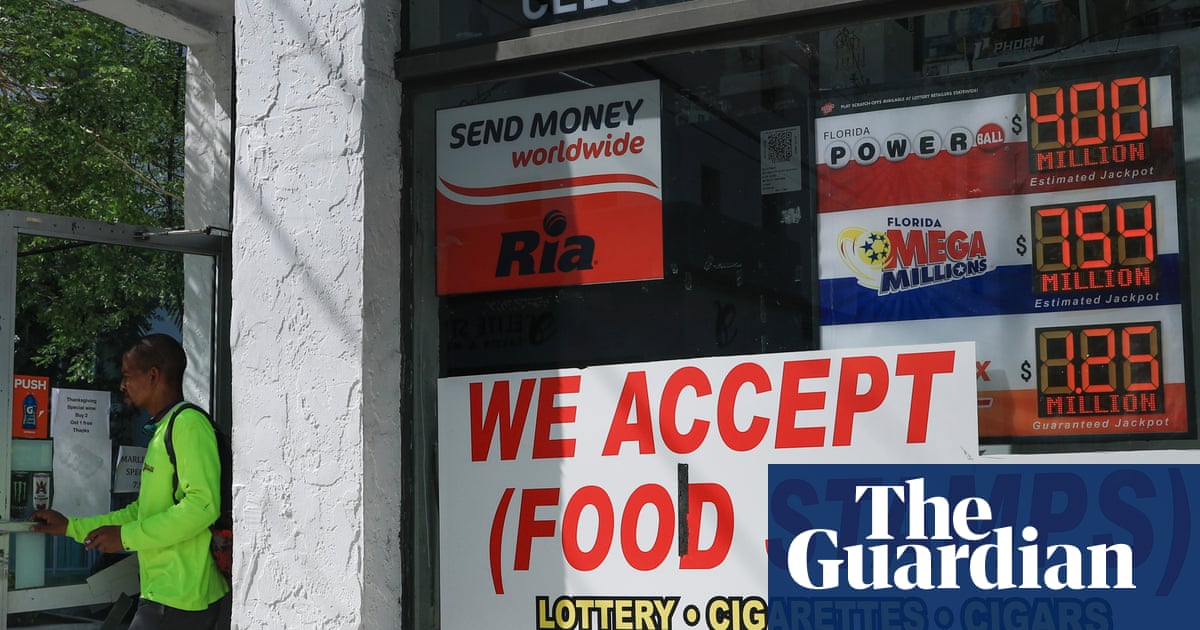CHICAGO — Local food pantries are preparing for an unprecedented increase in visitors as the Trump administration plans to cut off funding to food assistance.
Starting Saturday, nearly 2 million Illinois residents will lose Supplemental Nutrition Assistance Program benefits, known as SNAP, according to a Illinois Department of Human Services news release.
Trump administration officials have said they won’t fund the federal program until the government shutdown ends, while Illinois is one of 25 states suing the government, arguing officials must tap into emergency funds during the shutdown to finance the program. Gov. JB Pritzker signed an executive order Thursday that funnels $20 million in state funding to food banks across Illinois starting Nov. 1.
“It’s making a big impact, choosing between bills and foods,” said Charlene Echoles, a mother of three from Humboldt Park who is trying to figure out how to go without SNAP during the shutdown. “I’m learning about a lot of new pantries, so that’s a very good thing … but it’s still kind of a bummer because that food stamp money, it really helps in my household for feeding my kids.”
Nonprofit food pantries, many of which have already been stretched thin by rising demand in recent years, may not have enough food and resources to meet the extra demand from SNAP households.
Sandra Gillespie, who runs a small food pantry at Chosen Bethel Family Ministries, 6201 S. Sangamon St., said she has already noticed an increase in visitors. She and her volunteers have been talking about ways to stretch their existing food supplies or give out less to keep the shelter operating.
“It’s going to be tight. It’s going to be tough,” Gillespie said. “We’re a small church. We don’t have the resources to go out and buy thousands of dollars’ worth of food, but we’re going to do what we can.”
Gillespie fears some households will be forced to choose between buying food and basic necessities, especially as the cost of living goes up.
“I get a lot of seniors in my pantry, and so many of them have been telling me this for years, that very often they have to make a choice between their medicine and food. They come to the pantry to get what they can get,” she said.
In Illinois, of the households that receive SNAP benefits, 37 percent have older adults, 45 percent have children and 44 percent have a person with a disability, according to the Illinois Department of Human Services.

Evelyn Figueroa, who directs the Pilsen Food Pantry, 2124 S. Ashland Ave., plans on dipping into her organization’s emergency fund to meet the extra demand. Last week, the pantry saw new clients jump by nearly 50 percent, she said.
“People are preparing for this,” Figueroa said. “People who are already using SNAP are going to find a pantry. If the SNAP [program] had been that safety net that saved them the time of going to a food pantry, they’re going to have to spend this time, and they’re spending that time on us already.”
The Greater Chicago Food Depository, which distributes food to its network of 850 partners across Chicago and Cook County, is urging federal leaders to keep SNAP benefits flowing.
“The emergency food system was not designed to meet this sort of need. We’ve always worked in tandem with SNAP to provide the food that our neighbors need,” said Camerin Mattson, community manager at the Food Depository.
For every meal that a food bank like the depository is able to provide, SNAP provides the equivalent of nine meals, Mattson said. Any disruption could have huge impacts on Chicago households — one in five of which experience food insecurity.
SNAP is “literally a lifeline for families,” Mattson said. “Many of those families are struggling to make ends meet. Food prices are high, housing costs are high … with winter coming, [utility bills] are only going to rise.”
If the shutdown ends soon, SNAP participants will still face complications starting in December as new work requirements that came from Trump’s “Big Beautiful Bill” signed in July begin. With the changes, people younger than 64 years old will have to prove they work, volunteer or are enrolled in a qualifying education program for at least 20 hours a week or prove they qualify for an exemption to receive full SNAP benefits.
Participants with children younger than 14 qualify for an exemption.
These changes are expected to slash benefits for more than 360,000 low-income residents across Illinois, according to Pritzker’s office. Many food pantry leaders say that these work requirement changes will leave children, older adults, veterans and people with disabilities at risk of food insecurity.
“A lot of seniors do rely on these social safety-net programs, like SNAP, Medicare and Medicaid,” said Cory Morris, director of community impact at Meals on Wheels Chicago, which distributes meals and operates a monthly food pantry.
“Most of our seniors have about $47 a week to live on … and the dollar doesn’t stretch as far as it used to,” Morris said. “So if you’re needing to make the choice between medicine or food, it’s a really hard choice, especially if it’s a medicine that you need to just be able to function properly. I think a lot of hard decisions are going to be made.”
Chicagoans can help neighbors and organizations in need by donating money or volunteering, organizers said.
“We’ll obviously accept whatever donations of food people may make, but having financial resources allows us to buy what is needed when it’s needed,” said John Psiharis, executive director of the Irving Park Community Food Pantry. “That gives us some flexibility to see if we can get a better price on some of those items than the retail price that stores charge.”
Click here for a list of food pantries and programs in Chicago and Cook County.
Listen to the Block Club Chicago podcast:
